Fire protection competence
The basis for our comprehensive fire protection competence is a unique, very diverse product range. It makes us one of the few providers with a product range which covers all important protection aims of construction fire protection:
1. Limiting the spread of the fire,
2. Protect escape and rescue routes,
3. Maintaining the function of important electrical systems.
With OBO systems, planners and operators have the perfect components for the complete fire protection and function maintenance of their building.
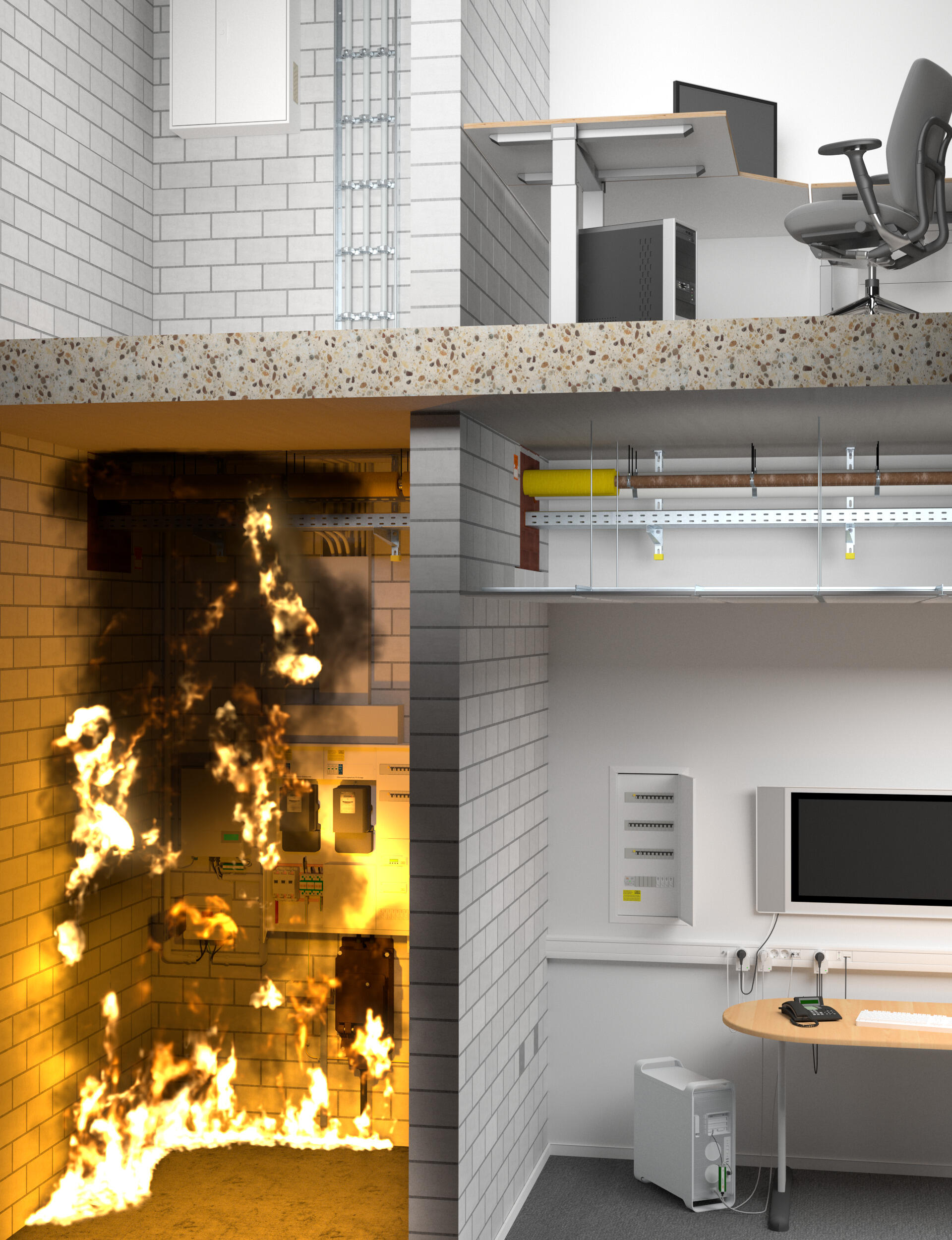
1st protection aim
Maintenance of the fire sections
The division of building into fire sections protects unaffected areas of the building from the spread of fire for specified periods of time.Insulation maintains the fire sections, thus limiting the spread of fire and smoke. These constructive measures protect people and property, allowing fire brigades to prevent the spread of fires to other parts of the building through extinguishing measures.
Function of firewalls
Fire walls should ensure that a fire cannot pass to neighbouring buildings or building sections. This creates so-called fire sections. The construction design of these firewalls (materials, fire resistance classes, stress values) is regulated by the building regulations and standards. Electrical cables and pipes may only be run through walls and ceilings at the ends of rooms when there is a guarantee that they do not present an opportunity for fire and smoke to spread.Insulation systems reliably seal the ceiling and wall penetrations required for installations against fire and smoke.
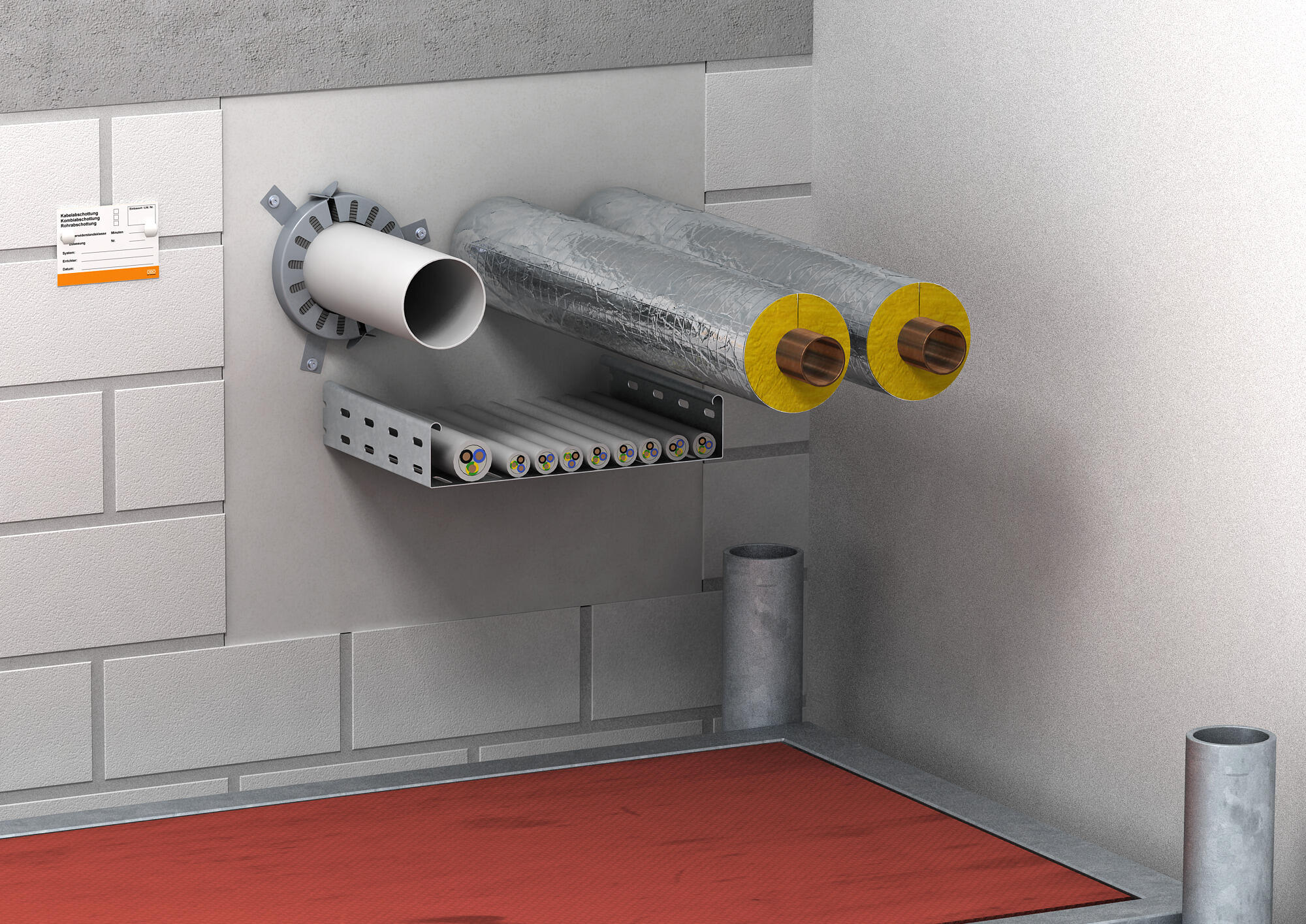
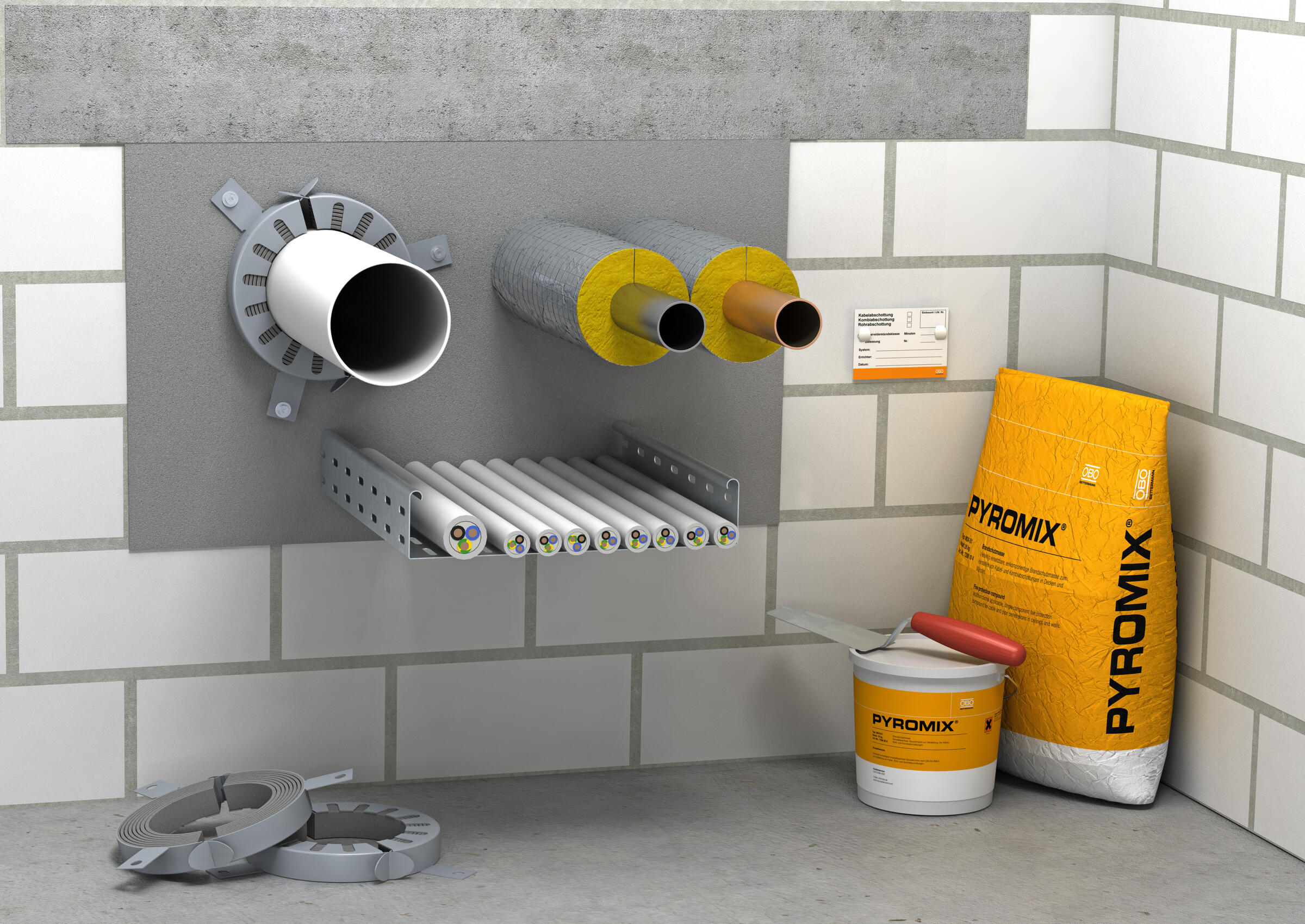
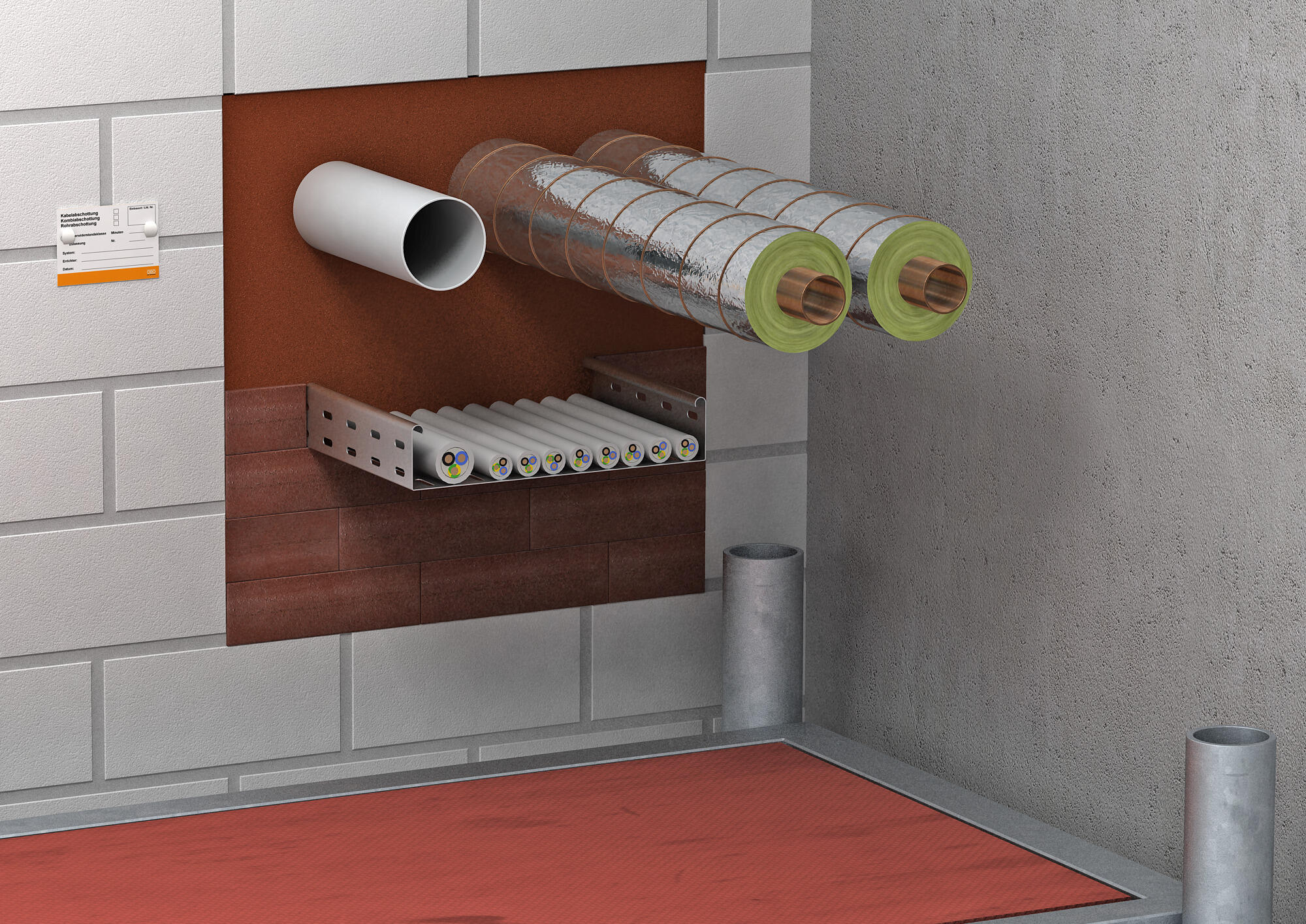
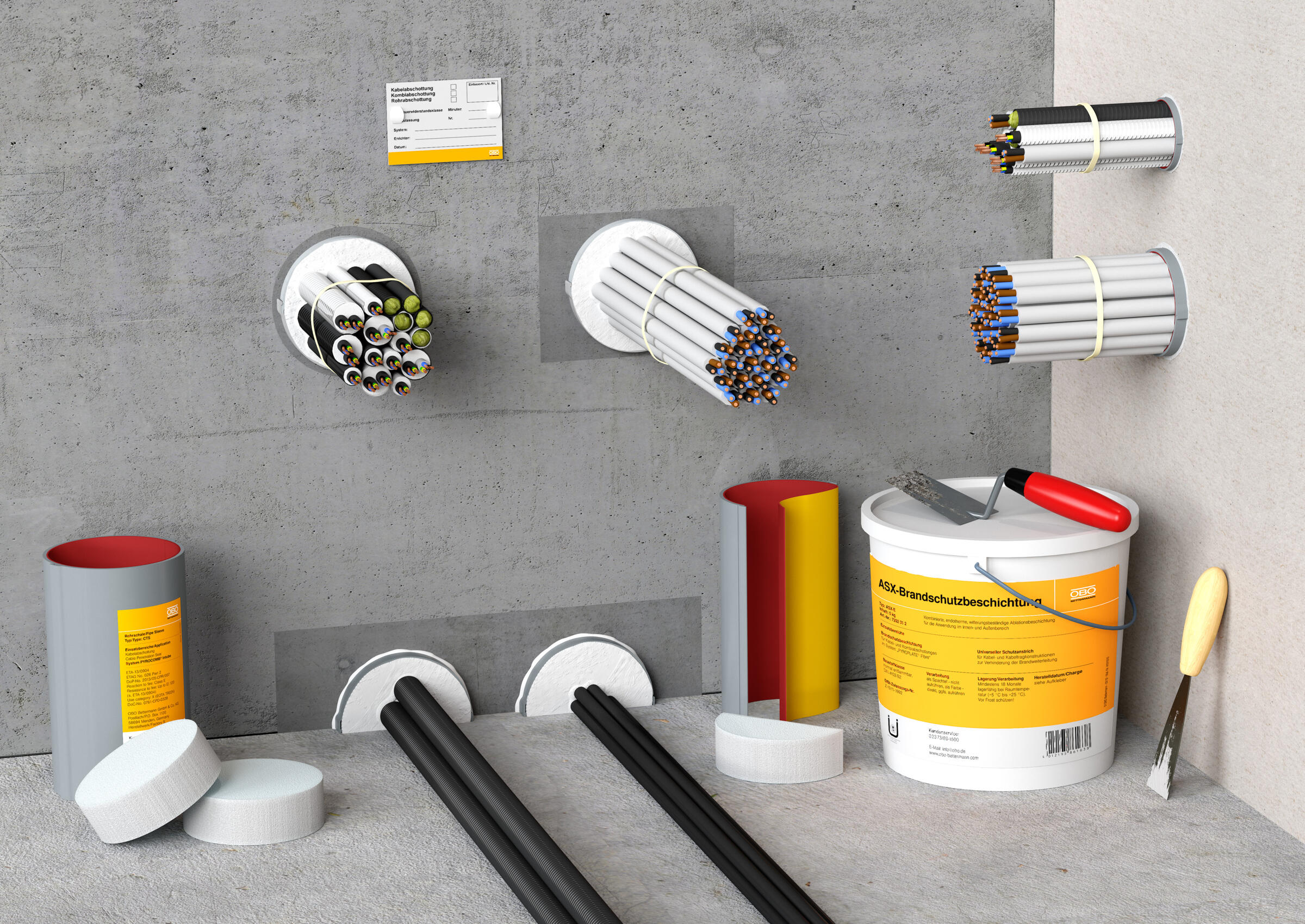
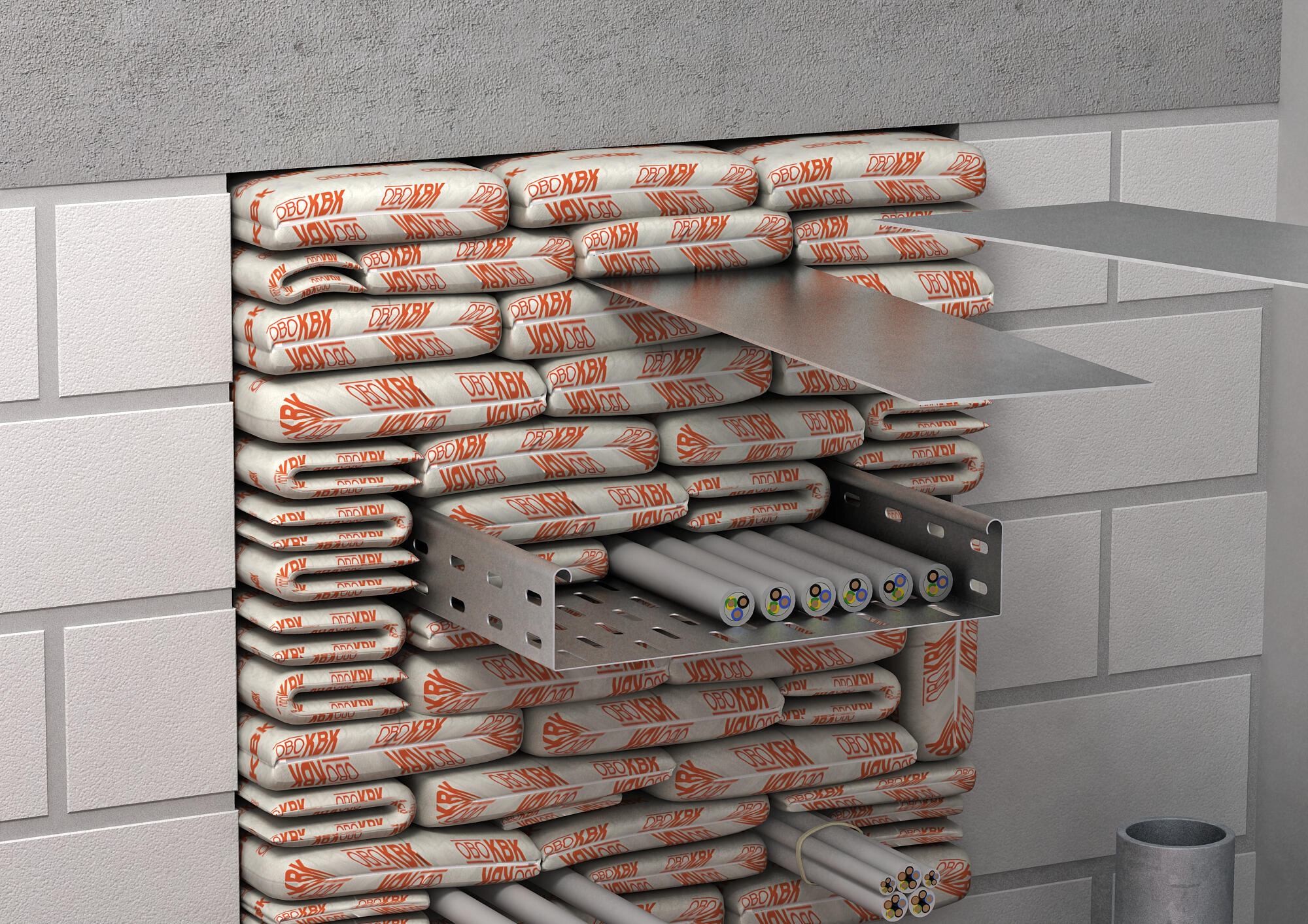





2nd protection aim
Protection of escape routes
According to the building regulations, there must be routes in buildings, which not only permit access to the building in a horizontal and vertical direction in normal situations, but which also offer the option of rescue in case of fire. It is therefore obligatory to equip buildings with at least one constructive emergency and escape route. Additional escape and rescue routes may also be necessary, depending on the type of building.
These include:
- Necessary staircases (vertical access)
- Connecting rooms between the necessary stairwells and exits to the outside
- Necessary corridors (horizontal access)
There must be a guarantee that, if there is a fire, these routes can be used to leave the building without any risk. In addition to evacuation, the escape and rescue routes also aid the local fire brigades as a point of attack. In the area of emergency and escape routes, an installation must not pose an additional fire load. This requirement can be fulfilled using an appropriate type of installation:
- Concealed installation
- Installation in fire protection duct systems
- Installation above suspended fire protection ceilings
- Use of non-combustible materials
- Routing of cables with improved behaviour in case of fire

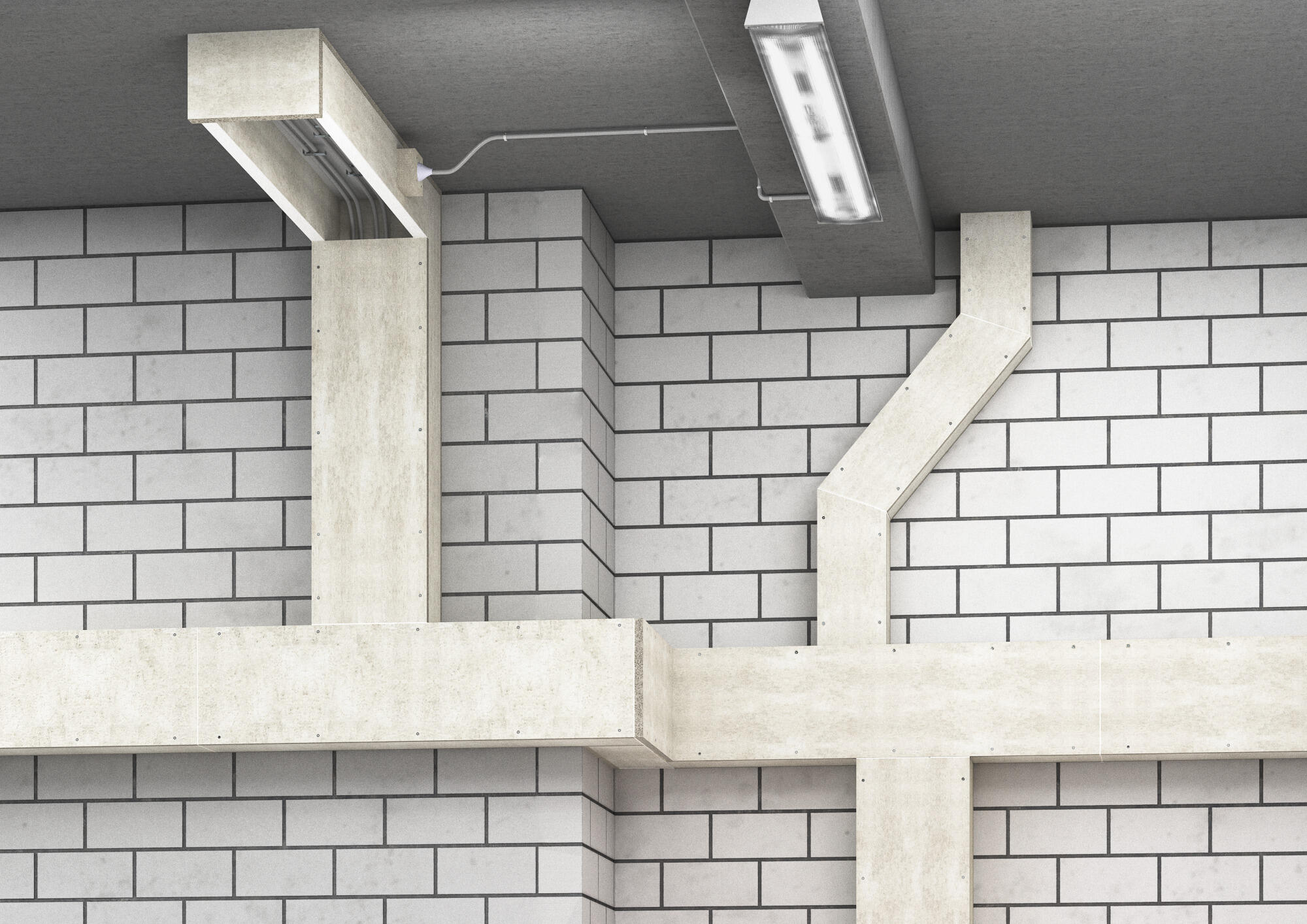
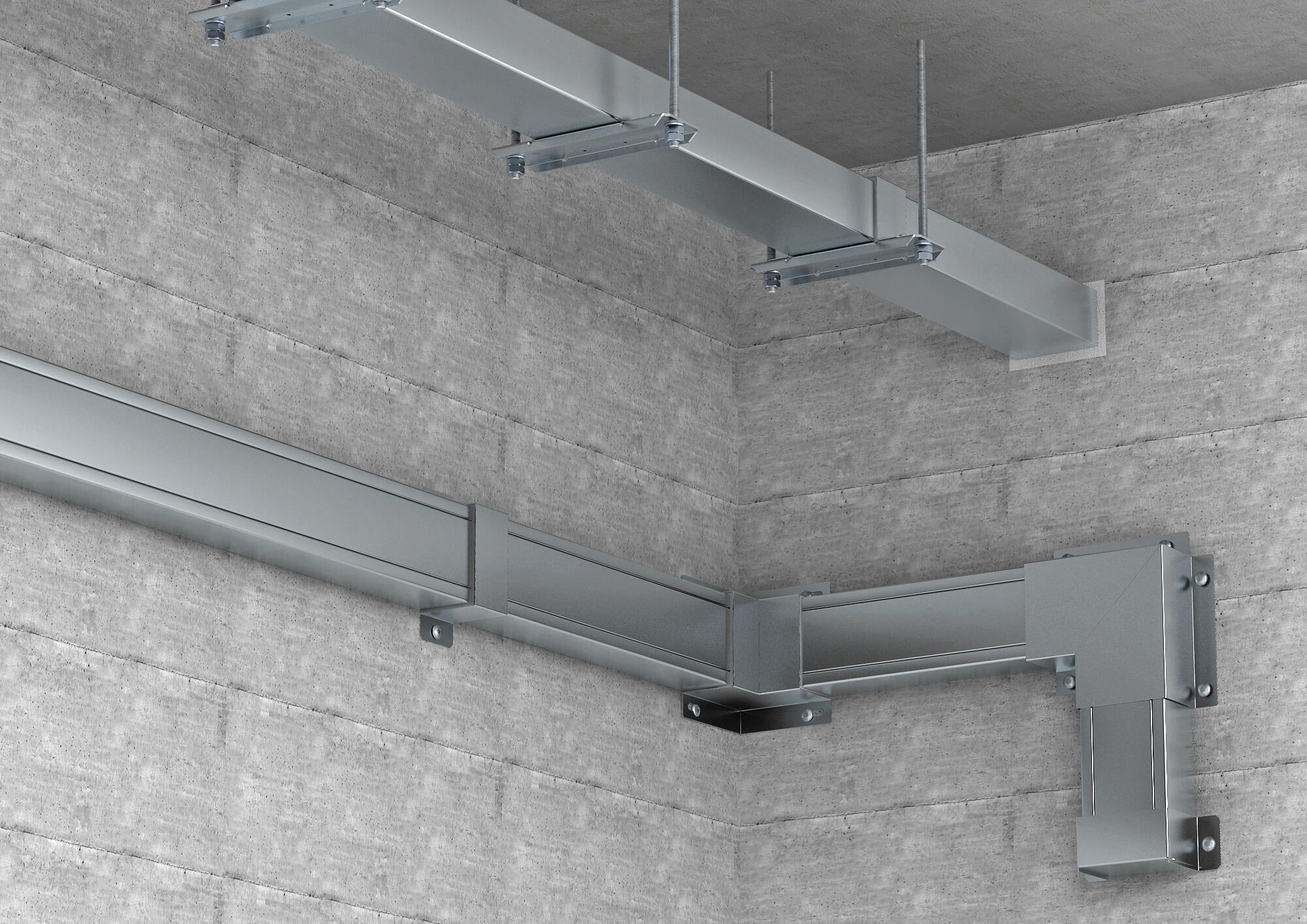
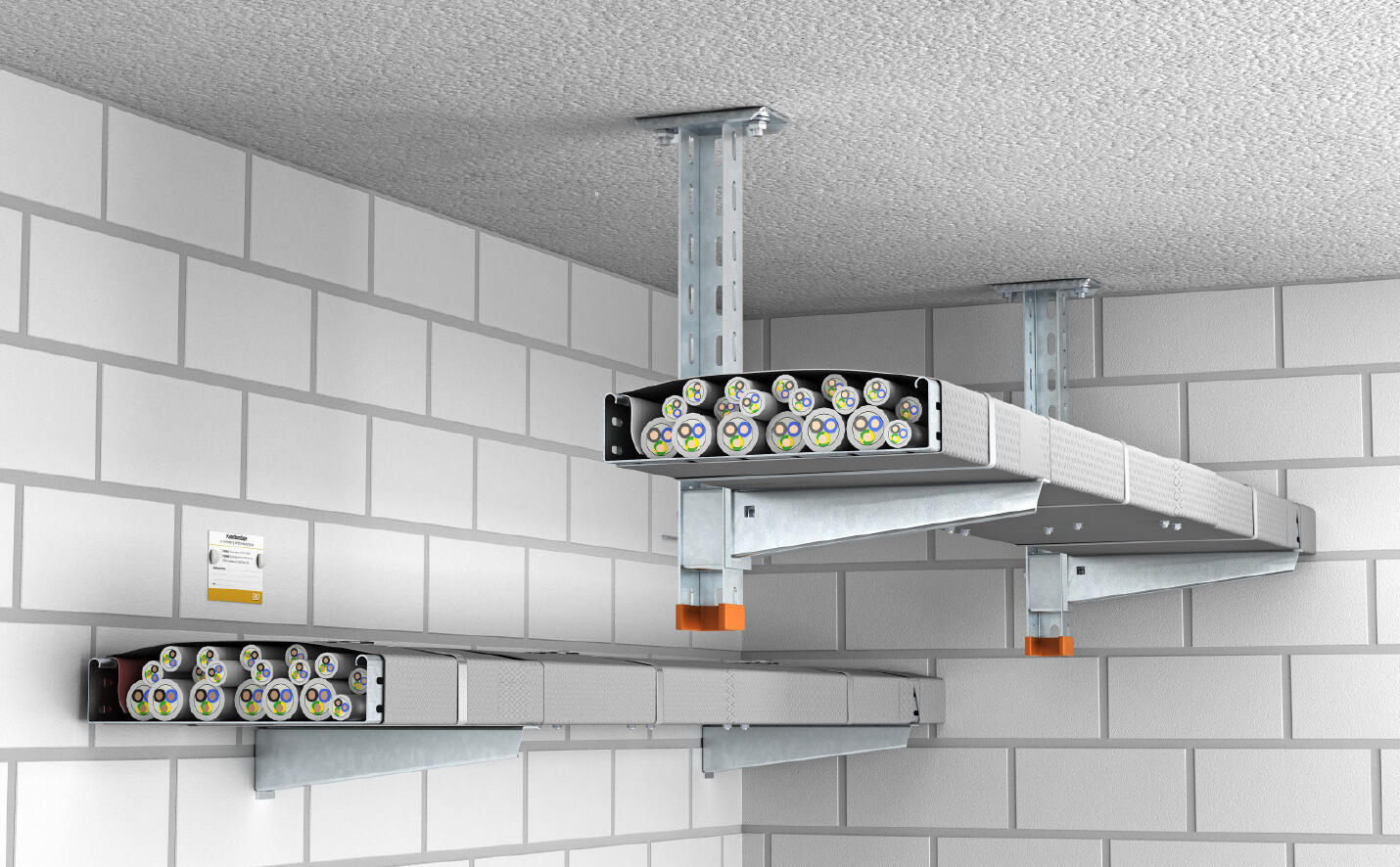




3rd protection aim
Maintaining the functionality of electrical systems
If there is a fire, emergency and escape routes must remain usable and important technical equipment, such as emergency lighting, fire alarm systems and smoke extraction systems, must continue to function. Therefore, it is essential that the power supply for these systems is specially protected. In addition, certain technical systems must support the fire brigades in fighting fires for a sufficiently long period of time.
Where is the maintenance of electrical function required?
Technical equipment with function maintenance is required for the following buildings and areas: Hospitals, hotels and restaurants, tower blocks, meeting places, shops, closed indoor car parks, metro systems, the chemical industry, power stations and tunnels.
This could be because these structures are regularly frequented by many people. This creates an increased safety risk for gatherings of people. However, with certain systems, property and the environment must also be protected.
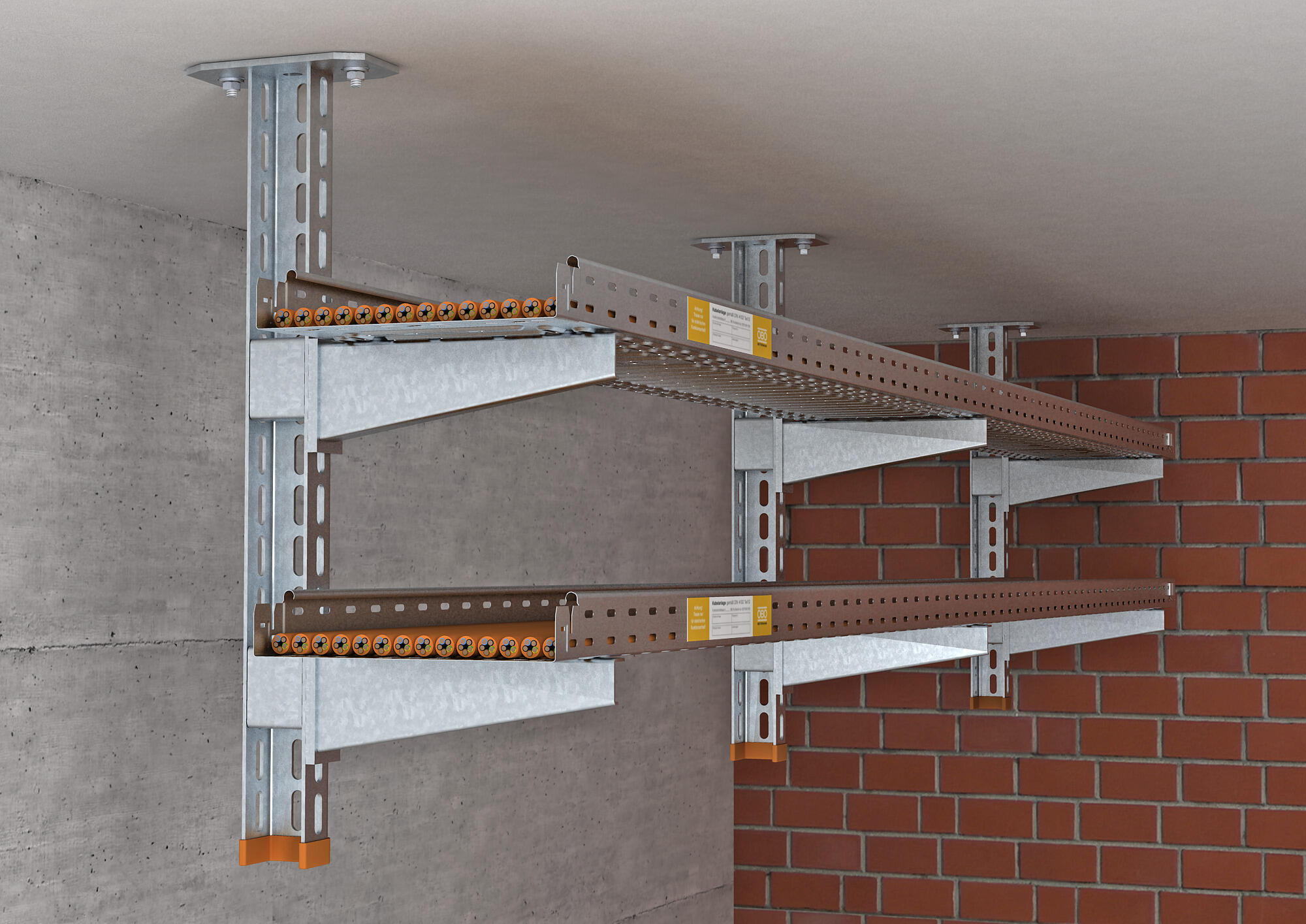
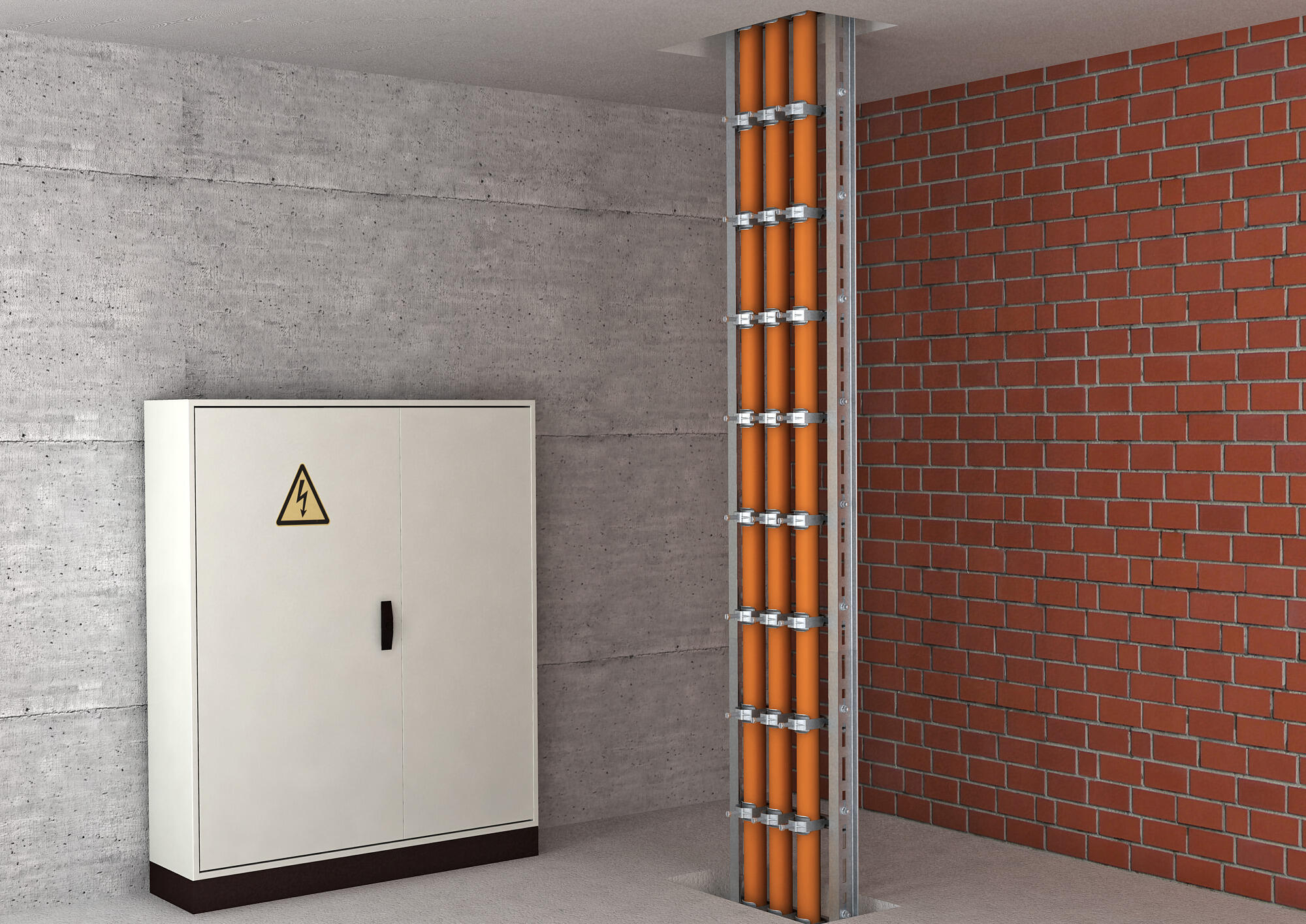
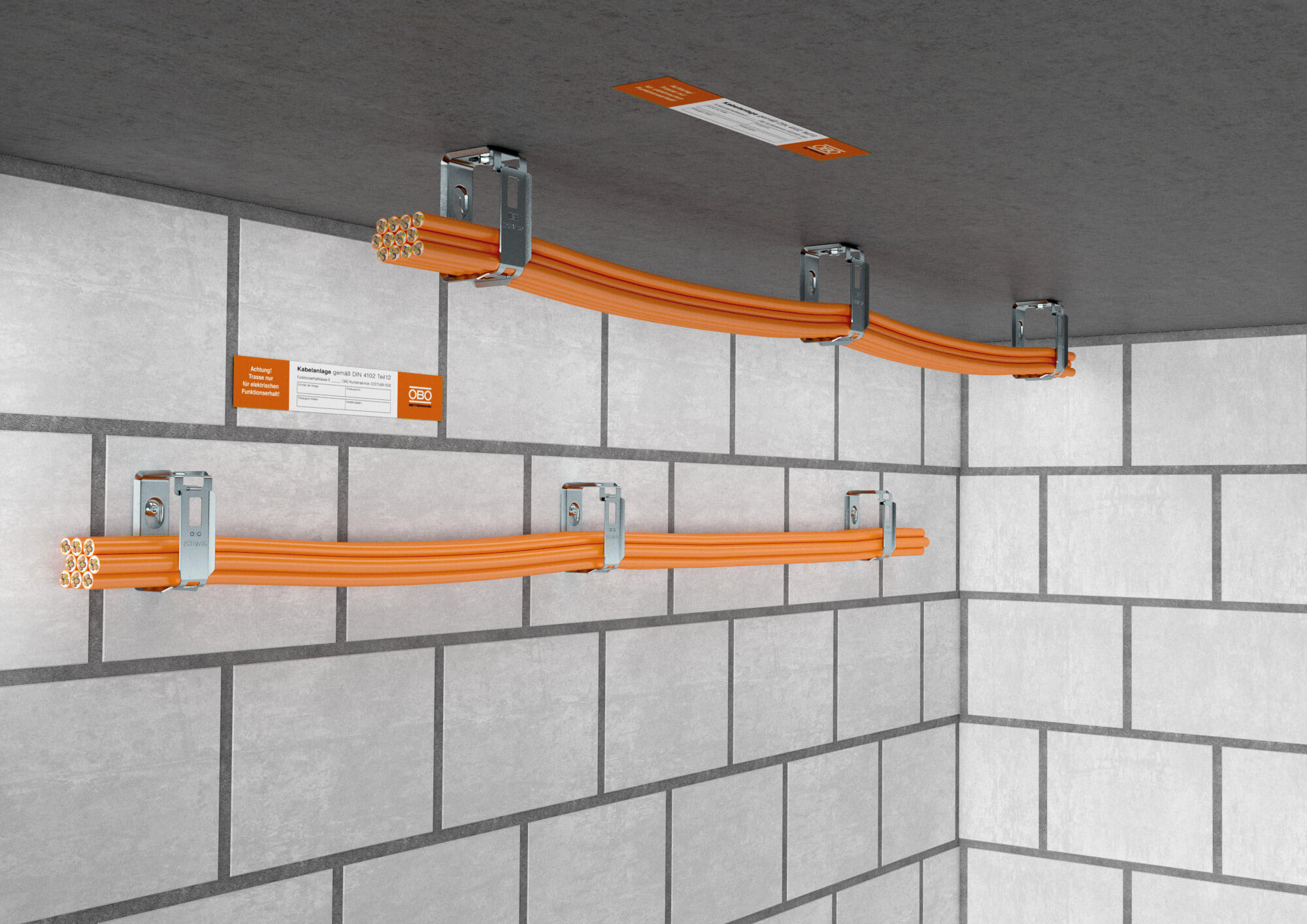
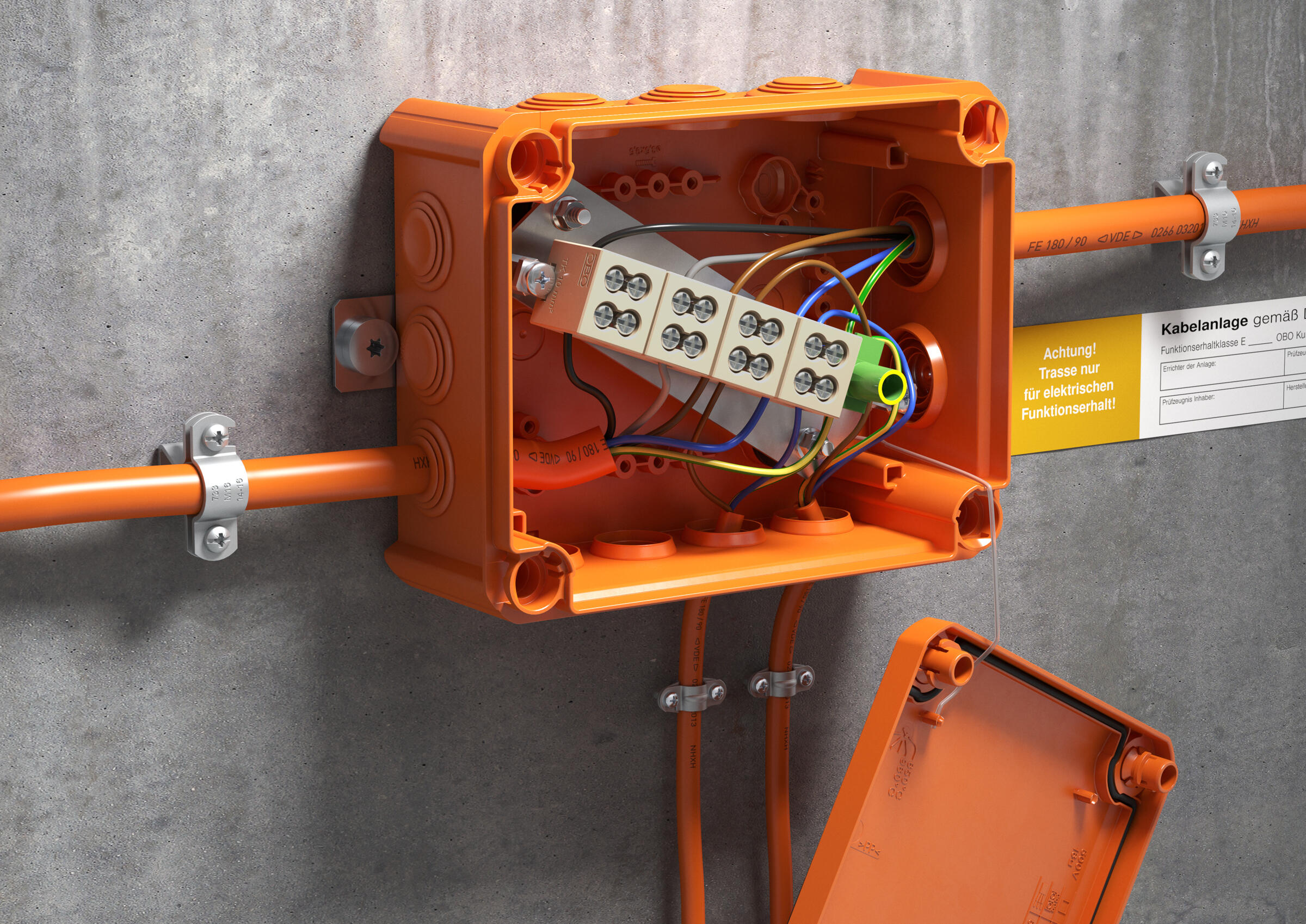




Overview of OBO fire protection systems
You might also find this interesting
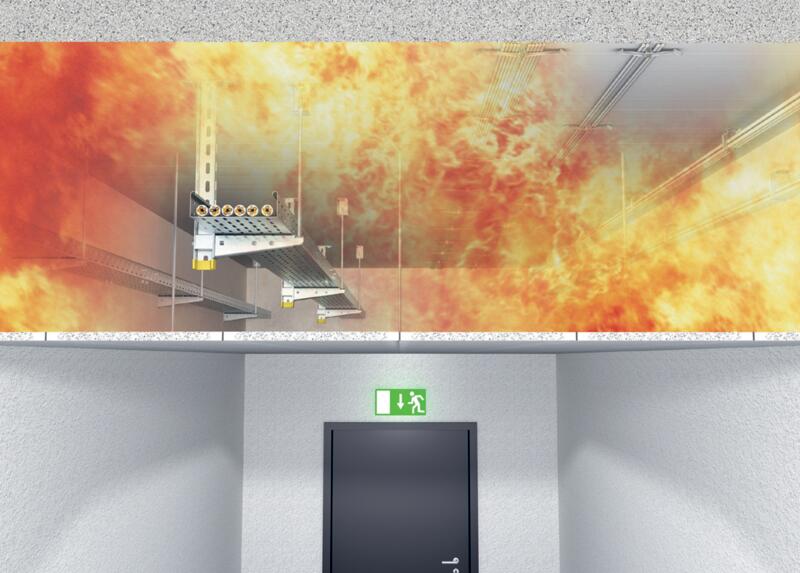
Certified fire protection: safe solutions for safe buildings
Whether proofs of application or test and classification standards – we help you stay on top of things.
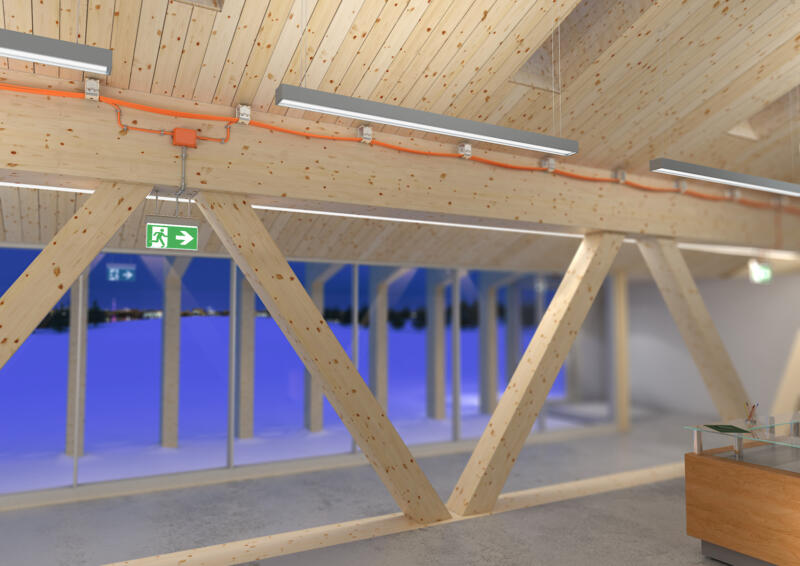
Fire protection when building with wood: maintenance of electrical function and fire insulation
Timber construction and fire protection can go hand in hand. OBO offers various solutions that achieve important protection aims in the event of fire: namely, the maintenance of electrical function and fire sections.
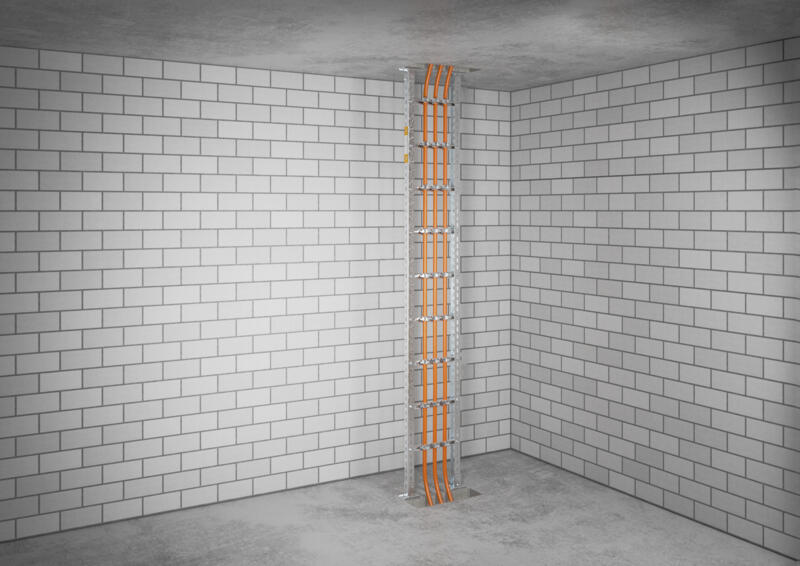
Suspended vertical ladders: function maintenance according to DIN 4102
The suspended vertical ladder from the OBO portfolio is approved as a standard support structure in accordance with DIN 4102 Part 12.